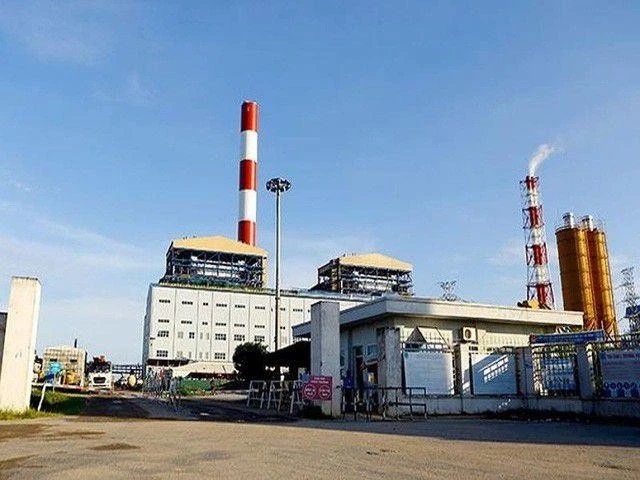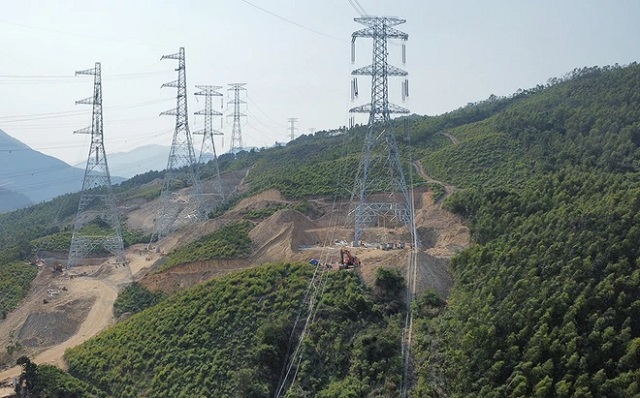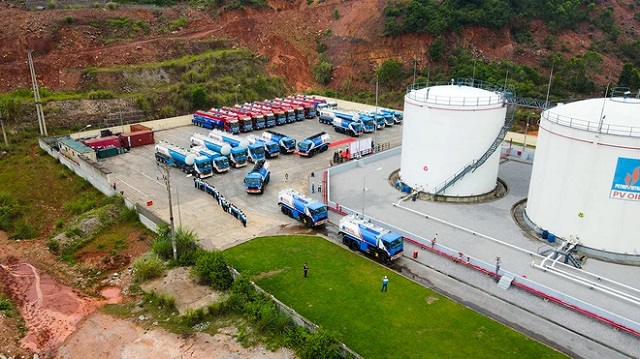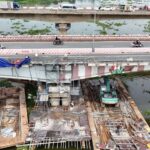
Thai Binh 2 Thermal Power Plant. (Photo: PV/Vietnam+)
|
The strain on electricity supply, especially during the dry season peak, has been a reality in recent times. According to experts, expediting the progress of power and grid projects, as well as fuel, primary energy, and renewable energy projects outlined in the National Energy Planning, is key to ensuring a stable electricity supply in the short and long term. To achieve this, bottlenecks and challenges facing even the most critical energy projects must be addressed.
Significant Investment Needs
Guaranteeing national energy security is vital to fostering socio-economic development. Alongside the implementation plan for the National Power Development Master Plan for the 2021-2030 period, with a vision towards 2050 (Power Development Plan 8), on April 2, 2024, the Prime Minister issued Decision No. 270/QD-TTg approving the List of National Key Programs, Projects, and Priority Energy Sector Projects.
This decision emphasizes five hydropower projects with capacities ranging from 200 MW to 1,200 MW to be implemented and put into operation during the 2021-2030 period (including three expansion projects and two pumped-storage hydropower projects) with a total capacity of 3,440 MW.
On April 26, 2024, the Prime Minister issued Decision No. 345/QD-TTg approving the 2021-2025 five-year production and business plan and investment development plan of the Vietnam Electricity Group (EVN). Accordingly, EVN must ensure it meets electricity demand with an average growth rate of about 7% per year for the 2021-2025 period (with a growth rate of about 7.82% per year from 2022 to 2025) and prepare to meet higher demand if needed.
Decision 345 also outlines the power development projects that EVN must initiate and operate during this period. This includes the commencement of seven power projects with a total capacity of about 3,800 MW, of which four projects with a capacity of about 1,000 MW must be put into operation (including 3,643 MW and 150 MWp: Hoa Binh Hydropower expansion, Ialy Hydropower expansion, Quang Trach I Thermal Power, Tri An Hydropower expansion, Bac Ai Pumped-Storage Hydropower, and Phuoc Thai 2 and 3 Solar Power)..
In the field of power grid investment development, during the 2021-2025 period, EVN must complete and operate 225 500-220 kV grid projects with a total length of about 10,500 km. This includes focusing on investing in and completing the key project of the 500 kV power line from Quang Trach (Quang Binh) to Pho Noi (Hung Yen) in 2024…
The total investment capital required to implement the five-year production and business plan and investment development plan (2021-2025) of the Vietnam Electricity Group (EVN), according to Decision 345/QD-TTg of the Prime Minister, is VND 479 trillion.

500 kV Grid Project. (Photo: PV/Vietnam+)
|
At a recent seminar on “Accelerating the progress of key energy projects,” Mr. Pham Hong Phuong, Deputy General Director of the Vietnam Electricity Group (EVN), mentioned the diversity in developing power and grid projects, ranging from capacity scale to type. Each project faces certain challenges, mainly related to legal procedures and land clearance issues.
For instance, due to the numerous changes in land management, contradictions and discrepancies arise. Moreover, land management can be complex and sometimes lax, leading to prolonged processes for determining land origins and ownership during compensation and clearance.
Based on the experience of implementing some critical and urgent energy projects, such as the 500kV Quang Trach-Pho Noi power line, which did not encounter significant obstacles in land clearance, EVN representatives emphasized the crucial role of the entire political system, especially the direct involvement of local authorities at all levels.
Harmonizing Interests and Sharing Risks
Expediting the progress of key energy projects is of utmost importance for ensuring national energy security, maintaining continuity and stability, and meeting the country’s energy demands. Additionally, investing in domestic energy projects helps reduce reliance on energy imports, mitigating risks associated with price fluctuations and international political situations. This contributes to the country’s stable and sustainable development in the coming years.
As an investor with a diverse portfolio in the energy sector, ranging from exploration and exploitation of oil and gas fields to the development of gas-fired and coal-fired power plants, Petrovietnam has faced unique challenges with each project. However, the most significant lesson learned is the importance of strong determination and unity within the entire political system.
Citing the successful operation of the Thai Binh 2 Thermal Power Plant as an example, Mr. Nguyen Ngoc Hai, Deputy Head of the Electricity and Renewable Energy Division at Petrovietnam, attributed their achievement to the company’s motto, “One team, one goal,” which transcends distinctions between investors and contractors and prioritizes the country’s interests. This unifying vision helped overcome various challenges.
Representatives from the functional departments of the Ministry of Industry and Trade emphasized the critical role of consistent and thorough guidance and direction from the Central Government, the Prime Minister, ministries, branches, local authorities, and investors in implementing key energy projects.
Additionally, they highlighted the importance of improving mechanisms, institutions, and policies, especially for LNG-fired power projects, which play a significant role in ensuring national energy security, as outlined in Power Development Plan 8.

Fuel Reserve for National Energy Security. (Photo: PV/Vietnam+)
|
Mr. Doan Ngoc Duong, Deputy Director of the Electricity and Renewable Energy Authority (Ministry of Industry and Trade), pointed out that projects worth billions of USD require international investment. While there are demands for investment and financial guarantees, many aspects, such as power and gas offtake agreements, LNG price conversion, and EVN’s payment responsibilities, are not yet stipulated in Vietnamese law.
Therefore, the Ministry of Industry and Trade is drafting a proposal based on practical research. The proposed mechanism aims to provide fundamental assurances for developing LNG supply chain projects and power plants, ensuring financial capabilities, and requiring investors to propose feasible solutions that comply with Vietnamese law to avoid future obstacles.
Economist and Dr. Vo Tri Thanh also emphasized the need for breakthroughs in expression and policy mechanisms, along with strong guidance and supervision from the State Steering Committee for National Key Programs, Projects, and Priority Energy Sector Projects.
Additionally, experts and managers highlighted the critical role of enterprises investing in energy projects in Vietnam. Even experienced international investors must thoroughly understand Vietnam’s legal system, especially the technical and economic regulations related to the investment, implementation, and operation of projects. Adopting the principle of “harmonizing interests and sharing risks” is essential.
Duc Duy





































